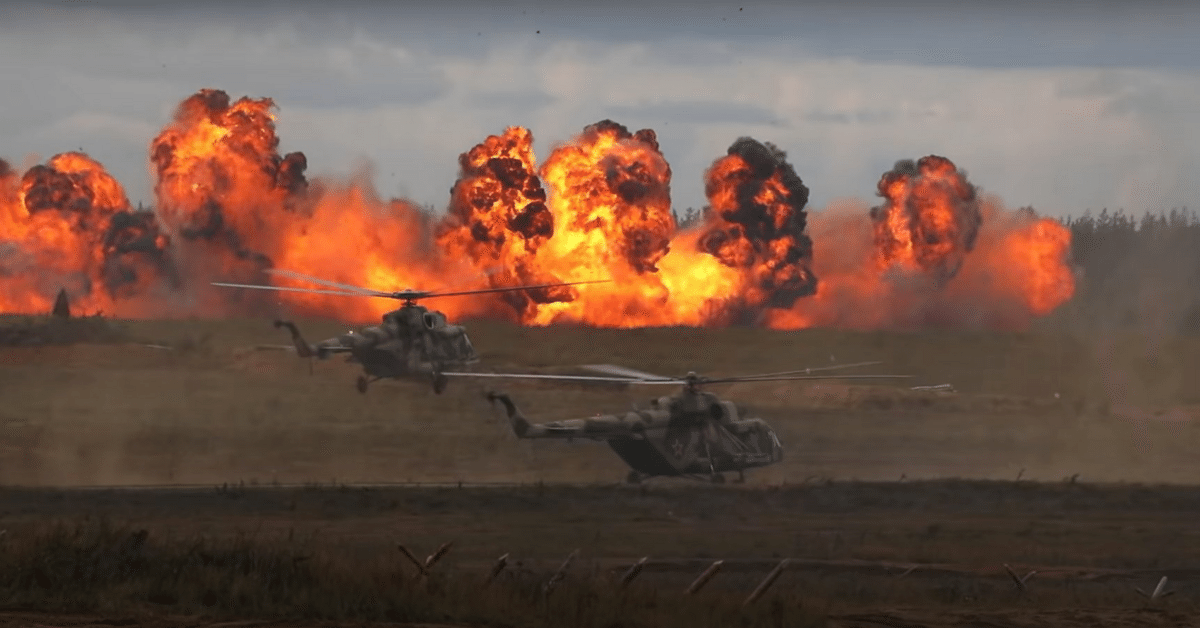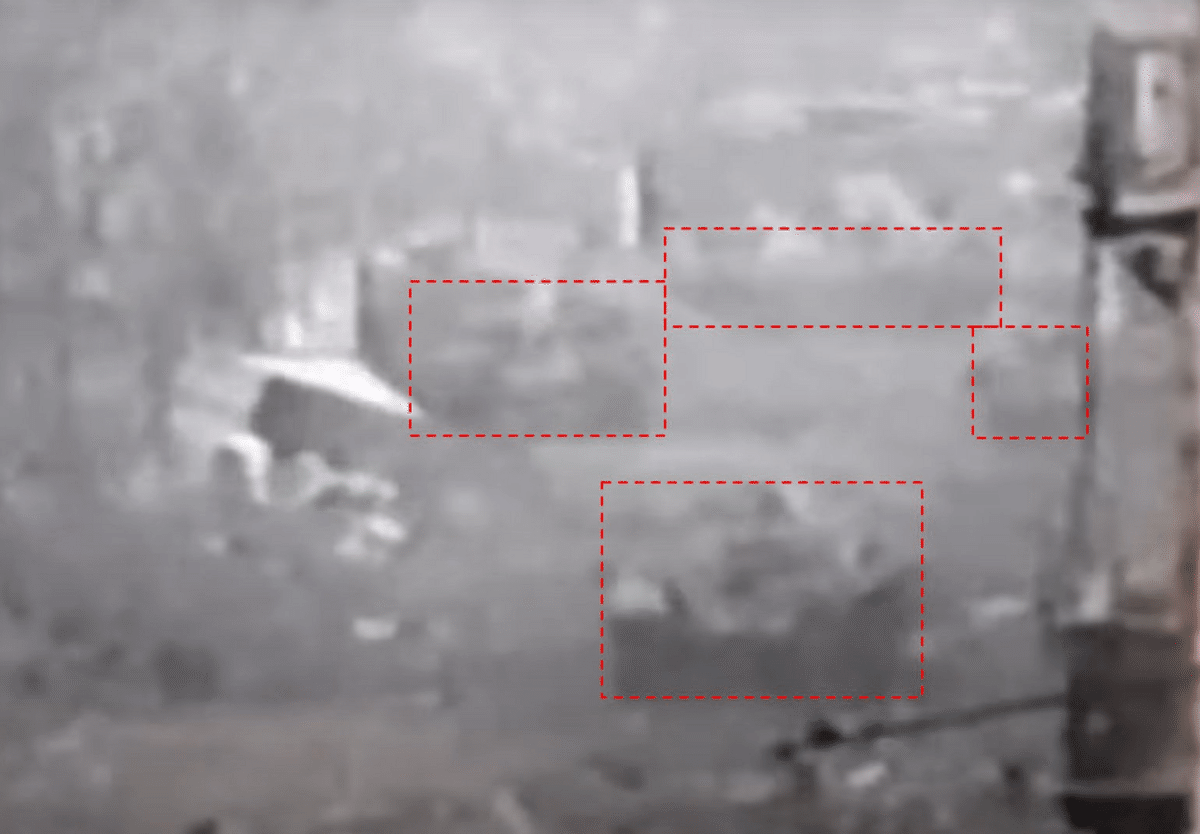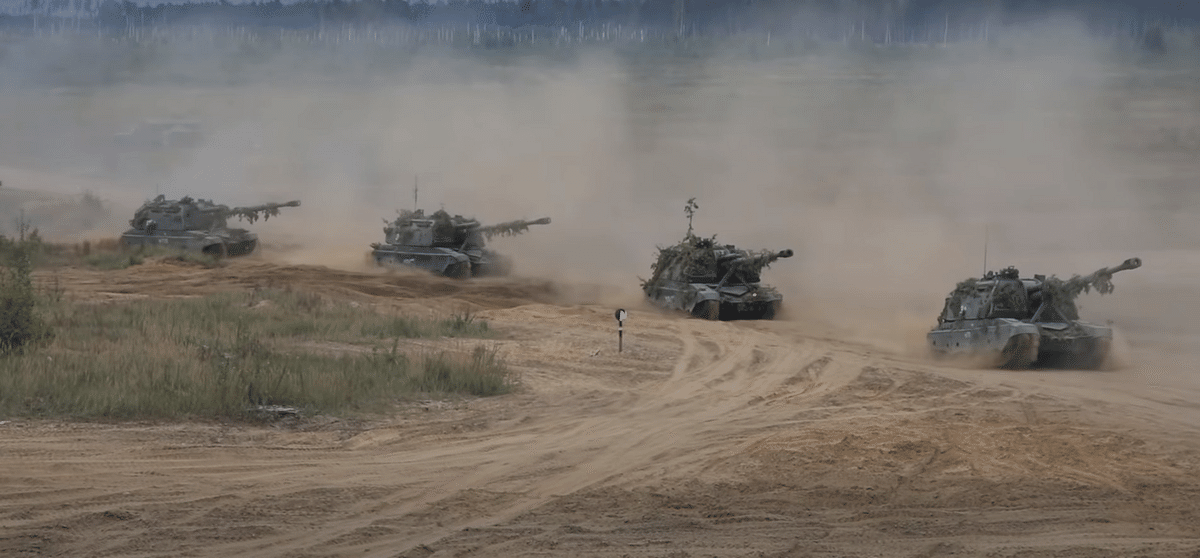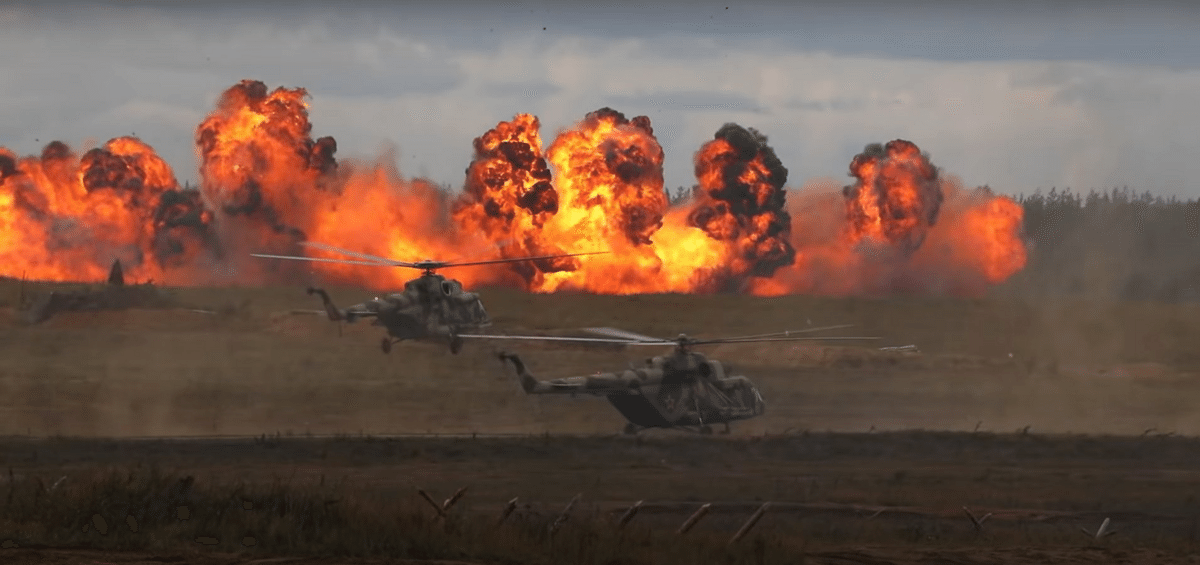
【SNS投稿和訳】ロシアは戦略敗北を喫したのか?:世界的な懸念と安全保障に関する展望(ウクライナ軍予備役将校の23.12.25付投稿)
Did Russia Suffer a Strategic Defeat? Global Concerns and Security Outlook
— Tatarigami_UA (@Tatarigami_UA) December 25, 2023
In the early days of the war, Russian armored columns, consisting of hundreds of tanks and APCs, broke into peaceful streets, leaving behind a trail of destruction and death. However, these columns… pic.twitter.com/ZQcaiRThjU
以下は、上記リンクのX投稿(日本時間2023年12月25日23:59)を日本語に翻訳したものだ。著者のTatarigami氏(SNSアカウント名)はウクライナ軍予備役将校で、X等のSNSやサブスタックにおいてウクライナ情勢に関する分析を発表している人物である。
ロシアは戦略敗北を喫したのか?
日本語訳
開戦後の数日間、数百両の戦車と装甲兵員輸送車からなるロシア軍の装甲隊列が、平和な街路に押し寄せ、破壊と死の爪痕を残していった。だが、数日のうちに、場合によっては数時間のうちにも、このロシア軍装甲隊列の多くは破壊されて、遺棄される運命に見舞われることになった。熟練した部隊機動によって迅速な勝利を達成する、このことができなかったことは、甚大な死傷者を生み、当初のロシア軍戦略目標達成の失敗につながった。その結果、ロシア軍は戦争遂行方法を再考せざるを得なくなり、圧倒的な砲爆撃による包囲と破壊に重点を置くようになった。

今まさに描写したことはウクライナとは関係のないことで、1994年から1995年に移る年末に起きたグロズヌイの戦いで生じたことを描写したのものだ。チェチェンの首都グロズヌイ陥落後でさえ戦争は続き、ハサヴユルト合意の締結をもって、戦争は1996年に終結した。この合意は、チェチェン共和国の独立を事実上、許容するものだった。それから3年後の1999年、新たに武装を整えて再編したロシア軍が、再びチェチェンに侵攻した。このときのロシアのやり方は、占領するだけにとどまらず、ロシアに忠実な軍事指導者を擁立するという結果ももたらした。
それからあっという間に20年近くが過ぎ、その間、チェチェン人の激しい抵抗は世界的に認知されるようになり、チェチェン人は大規模な処刑と拷問に耐え忍んできたにも関わらず、チェチェン人の一部、現在カディロフツィと呼ばれる人々は、ウクライナにおいて、過去のロシアのチェチェン侵攻を彷彿とさせる行為に関わっている。クリミア出身の、そしてドネツィク・ルハンシク両州出身のウクライナ人も同じような悲惨な運命のもとに置かれている。8年しか経っていないのに、召集されたウクライナ人で構成された新たな軍部隊が、自分たちの隣人を、自分たちの親族やかつての友人を侵略する準備を整えて、出現している。
ザポリージャ州とヘルソン州を含む、この戦争の開戦以降にロシア占領下になった地域も今後、同様の運命に見舞われるだろう。マリウポリが完全に破壊されたのち、最初に建築された大規模建造物の一つが、軍の幼年寄宿舎学校だ。これは、ロシア軍とロシア治安機関向けの予備士官候補生を育成する取り組みだ。

一人の分析者として、客観性を保つことは重要であり、分析結果が特定の言説に合致するかどうかに関係なく、情勢は評価判断されなけれならない。現在、重要な問題が浮上している。それは、ロシアがウクライナにそうしたように、NATOに直接侵攻する可能性という問題だ。アウジーウカのようなウクライナの町を占領することに、ロシア陸軍が数カ月間、苦闘していることを考えると、ロシア軍がワルシャワのような大都市を占領できる能力を現在、有している可能性は低いようにみえる。だから、直接侵攻の見通しは低そうだ。だが、このことは、ロシア軍戦車隊がNATO領内に侵入する可能性を排除するものではない。では、どうやってそれが可能になるのか。
この選択肢には、血生臭いことに変わりないが、より繊細で実践的なアプローチが含まれている。直接的な軍事衝突によってNATOを敗北させる見込みの低さを、ロシア軍部は認識している。その主たる理由に米国の強さがある。そうであるとはいえ、ロシアの征服主義的で現状修正主義的な世界観への大きな脅威として、NATOは認識されており、この脅威は除去されねばならないとロシアははっきりと考えている。
米国との軍事衝突と核エスカレーションにつながりかねない、直接的な物理的パワーに頼る代わりに、ロシアが複合的アプローチを用いる可能性は高い。それには代理勢力の武力の使用も含まれる。可能性のあるシナリオの一つに、ラトビアに住む民族ロシア人を活用するというものがある。ラトビアの人口の25%がロシア系である。そして、これは2014年のドンバス戦略と同様に、ある種の内戦や独立運動という枠組をつくるアプローチだ。このような状況は、NATO第5条が適用されるかどうかに関する曖昧さを生じさせることになるかもしれず、その場合、NATO諸国の一部に積極的な介入を思いとどまる動きが生じかねず、NATOの連帯感・原則・安全保障上の意義を損なうことにつながりかねない。

ロシア系が人口に占める割合はラトビアよりも小さいけれども、リトアニアにおいても同じシナリオが実施される可能性がある。事件を引き起こし、2つのNATO加盟国を巻き込むために、ロシアは代理勢力を用いるかもしれない。例えば、ベラルーシにいるワグネルのような勢力を使うということだ。重要なこととして、ワグネルにしても、その他のロシア代理勢力にしても、これらは公式のロシア軍事力の一部ではないということがあり、そして、この種の勢力はロシア国外で作戦を行う。これは単なる憶測ではない。実際にロシアは2014年に同種の戦術を用いており、これと同じ作戦工作をイランは成功させている。例えば、米軍と交戦するのにイエメンのフーシ派を利用する、またはイスラエルと交戦するのにレバノンのヒズボラを利用するといったことだ。ロシアの包括的な目標は、しぶといくらいに変わっていない。つまり、直接的な交戦や核の応酬に伴う屈辱的な敗北に直面することなく、NATOを試すことだ。仮に成功した場合、その成功は、ロシアがなし得る最大かつ最重要の地政学的達成の一つになるだろう。
ここまで述べてきたことは、プーチンだけが行い得る戦略ではない。ロシアとベラルーシが、不法難民を欧州に対する武器に仕立てて、国境地域にいる難民を不安定化要素として悪用していることは周知のことだ。この状況は極右政党の台頭も助長しており、それら政党の一部は公にモスクワから支持されている。ロシアの目標は、欧州を軍事力ですぐさま敗北させることにはない。そうではなく、欧州の複数の国にロシアの国益に適う指導者を導入することを目標にしている。ハンガリーにおけるオルバンのようなことだ。このロシアの戦略は、米国における孤立主義勢力と連動させることで、欧州の機能不全を追求し、ロシアに対する団結した対抗の阻止を追求している。
プーチンが仕掛ける2方向からのアプローチは、シンプルだが効果的だ。まずプーチンは、戦争・苦難・破壊と死で特徴づけられたウクライナ型シナリオを提示している。他方でプーチンは、ガス石油価格の改善、戦争回避、エリート層の利益、そして「反グローバリズム」運動へのポピュリズム的支持を約束する「オルバン」タイプのシナリオも提供している。この戦争は不愉快な現実をずっと示している。それは、GDPに大きな開きがあるにも関わらず、欧州の軍需生産はポスト冷戦政策の結果、衰退してしまったという現実だ。消耗戦に対する西側の準備不足は明白で、この状況はロシアの軍事ドクトリンに組み込まれた戦略なのだ。
ロシア軍は技術的に優れた敵対勢力を長期化する紛争に引きずり込もうとしており、その結果、ロシアの相手は経済的に持続できなくなり、ロシアが望む条件での和平交渉を最終的に強要されることになる。重要な疑問がここで浮かび上がる。ロシアが示す選択肢に安価なロシア産資源が含まれ、欧州にお金を落とすロシア人エリート層がもたらす利益がそこに含まれるとき、スペイン・ポルトガル・オランダ・イタリア・ルクセンブルクといった国々の国民で、何千何百といった死者と障害者が出ることに耐えられる人がどれほどいるのだろうか。不幸なことだが、この疑問への答えは楽観視できるものではない。欧州が腰掛けている枝を欧州自身が切り落とすのに使うノコギリを、ロシアは以前から欧州に売っていたのだ。

ウクライナは現在、欧州におけるロシアのさらなる行動を抑え込む存在として機能しており、その間、自国のリソースの大半を現下の戦争に集中させている。チェチェンの例を思い出すことは極めて重要だ。この例が示しているのは、征服され従属下に置かれた国家は、単に経済的な下僕に成り下がるだけで済まないということだ。ロシア従属国は自国民をロシア軍に差し出すことになる。そして、ロシア軍において民族的少数派の死傷率は、多くの場合、高い。このような行動パターンは、歴史的にみるとギリシア都市国家を征服するために従属臣民から兵を集めたクセルクセスのペルシア軍に近いのだが、これは歴史的なお話ではない。
もしウクライナがロシアの手に落ちれば、同じような悲惨な出来事が待っていることはありうる。それは、抑圧であり、同化であり、将来の戦争のためにロシア軍に強制招集させられることである。
米国が孤立主義的姿勢を選択したうえで、ウクライナのような、バイデン大統領が死活的に重要な国益とみなした同盟国または連携国を、米国が見捨てるならば、ロシアはこのような弱みにつけ込んでくるだろう。隣国を従属させるために軍事力を投入する見込みは、さらに現実味を帯びてくる。とりわけ新たに占領した地域からの人的補充を、クリミアやドネツィク・ルハンシクでみられるように、行う可能性を考えれば、とりわけそうだ。
ウクライナが失われるようなことが起これば、それは、欧州中に影響力を行使しようとする野心をプーチンが追い求めることを助長することになりうる。ウクライナ型シナリオの脅威に、経済的な動機づけとエリート層の腐敗を組み合わせるやり方は、小さな隣国を征服する道具になる。このことは、欧州諸国の安定に重大なリスクを招くだけでなく、米国の経済状況に深刻な衝撃を与える可能性ももっている。
ウクライナでプーチンの行動を食い止めることは、これまで説明してきたシナリオを阻止するための重要な基本的要素だ。ロシアの軍事的敗北は、よりいっそう攻撃的な計画を抑止するものとして働くことになるだろう。
ウクライナへの軍事的支援の継続だけが、勝利を担保することになる。このような支援がない場合、私たちは多極化世界のなかに自身がいることを知ることになるかもしれない。そのような世界は、現状修正主義的国家におけるポピュリズム的言説によって焚き付けられる世界であり、一世紀前を正確に再現したような世界だ。
皆さんに、メリークリスマスの言葉を。
X投稿の原文(英文)
Did Russia Suffer a Strategic Defeat? Global Concerns and Security Outlook
In the early days of the war, Russian armored columns, consisting of hundreds of tanks and APCs, broke into peaceful streets, leaving behind a trail of destruction and death. However, these columns often met the fate of being devastated and abandoned within days or even hours. The failure to achieve quick victories through skilled maneuvers led to high casualties and a lack of success in their initial strategic goals. As a result, Russian forces had to rethink their approach, focusing on encirclement and destruction through extensive artillery and aviation strikes.
What I just described wasn't related to Ukraine but rather described events from the Battle of Grozny during the New Year's Eve period of 1994-1995.
Even after Grozny, the capital of Chechnya came under Russian control, the war concluded in 1996 with the signing of the Khasavyurt Accord, granting de facto independence to the Chechen Republic. In three years, the re-armed and reorganized Russian army invaded Chechnya again in 1999. This time, their approach not only led to occupation but also resulted in the installation and promotion of a loyal warlord.
Fast forward two decades, despite the Chechen people gaining global recognition for their fierce resistance, and enduring the suffering of mass executions and torture, some of them, now called Kadyrovites, find themselves involved in actions in Ukraine reminiscent of past Russian aggression against them. Ukrainians from Crimea, Donetsk, and Luhansk oblasts, share a similar fate. In just eight years, new military units, composed of drafted Ukrainians, have emerged, ready to invade their neighbors, relatives, and former friends.
The recently occupied territories by the Russians, including parts of Zaporizhian and Kherson oblasts, will face a similar fate. Following the complete destruction of Mariupol, one of the initial large-scale constructions is a military boarding school for school-aged children - an effort to cultivate a new cadre reserve for the Russian military and law enforcement.
As an analyst, maintaining objectivity is important, and situations must be assessed regardless of whether the outcomes fit a particular narrative. Currently, a key question emerges about the possibility of Russia directly invading a NATO country, akin to an invasion of Ukraine. Given that the Russian army has been struggling to capture a Ukrainian town like Avdiivka for several months, it seems unlikely that they can currently manage to seize a city like Warsaw. Therefore, a direct invasion seems improbable. However, this doesn't rule out the possibility of Russian tanks entering NATO territory. But how is it possible?
The alternative could involve a more subtle and pragmatic approach, albeit one that remains bloody. Russians recognize the improbability of defeating NATO in a direct confrontation, primarily due to the strength of the US. Nevertheless, in their strategic perspective, NATO is perceived as a grave threat to their expansionist and revisionist worldview, and they believe this threat must be eliminated.
Instead of relying on direct kinetic power, which could lead to a military confrontation with the US and potential nuclear escalation, Russia is likely to use a combination of approaches, including kinetic power through proxies. One potential scenario involves leveraging ethnic Russians in Latvia, constituting 25% of the population, like the 2014 Donbas strategy, framed as a civil war and separatist movement. This could create ambiguity around the applicability of NATO Article 5, possibly dissuading some countries from active participation and undermining NATO's cohesion, principles, and sense of security.
A similar scenario could be implemented in Lithuania, despite the lower percentage of Russians in the country. Russia might utilize proxy forces, such as Wagner in Belarus, to provoke incidents and indirectly involve two NATO countries. Importantly, Wagner and other Russian proxy forces are not formally part of the Russian military, operating from outside Russian territory. This isn't mere speculation; Russia employed similar tactics in 2014, and it mirrors successful operations by Iran, like the use of Houthis in Yemen to engage with US forces or Hezbollah in Lebanon to engage with Israel. The overarching goal persists – to assess NATO unity without a humiliating defeat in direct confrontation and nuclear exchange. If successful, it would stand as one of the most significant geostrategic achievements that Russia could attain.
These are not the only strategies at Putin's disposal. Both Russia and Belarus are known to exploit immigrants at their borders as a destabilization factor, weaponizing illegal immigration against Europe. This also fuels the rise of far-right political parties, some openly sponsored by Moscow. Russia's goal is not an immediate military defeat of Europe; rather, it aims to install leaders aligned with its interests, akin to Viktor Orban in Hungary, across multiple European countries. This strategy, combined with isolationist forces in the US, seeks to render Europe dysfunctional and impede its collective resistance against Russia.
Putin's dual approach is simple yet effective. On one hand, he showcases the Ukrainian scenario marked by war, suffering, destruction, and death. On the other hand, he offers an "Orban" scenario promising improved oil and gas prices, avoidance of war, enrichment of elites, and populist support for the "anti-globalist" movement. This war has shown the unpleasant reality when despite large GDPs, European military production has languished due to post-Cold War policies. The unpreparedness of the West for a war of attrition is clear, a strategy integral to the Russian military doctrine.
Russians aim to draw technologically superior opponents into protracted conflicts, rendering it economically untenable and eventually forcing negotiations on Russia's terms. A critical question arises: how many citizens of Spain, Portugal, Netherlands, Italy, or Luxembourg are willing to endure hundreds of thousands of killed and crippled when the alternative involves reclaiming inexpensive Russian resources and benefiting from Russian elites who spend money in their countries? Unfortunately, the answer to this question may not be optimistic - Russians have sold the saw which Europe uses to cut the branch it's sitting on in the past.
Ukraine currently serves as a deterrent to further Russian actions in Europe, as the bulk of its resources are concentrated in the ongoing war. Reflecting on the example of Chechnya is crucial; conquered and subdued nations don't merely become economic vassals. They contribute people to the Russian army, where ethnic minorities often face high casualty rates. This pattern, akin to historical instances like Xerxes' Persian army conscripting subjects to conquer Greeks, is not a historical fiction.
If Ukraine were to fall, it could follow the same trajectory—repressions, incorporation, and forced mobilization into the Russian army for future conflicts.
In the event of the United States adopting an isolationist stance, and abandoning allies or partners such as Ukraine, a nation deemed of vital national interest as outlined by President Biden, Russia will exploit this vulnerability. The prospect of using military force to subdue neighbors becomes more viable, especially when considering the potential to replenish human resources with newly occupied territories, as seen in Crimea, Donetsk, and Luhansk.
The potential fall of Ukraine can reassure Putin in pursuing his ambitions to exert influence over Europe. The threat of a Ukrainian-style scenario, coupled with offered economic incentives and the corruption of elites, could be instrumental in subduing smaller neighboring nations. This not only poses a significant risk to the stability of European countries but also has the potential to seriously impact the economic situation in the United States.
Halting Putin's actions in Ukraine is essential to prevent the described scenarios. Russia's military defeat would act as a deterrent to further aggressive plans.
Only continuous supplement of military aid to Ukraine will ensure victory. Without such support, we might find ourselves in a multi-polar world driven by populist rhetoric in revisionist states, just exactly like a century ago.
Merry Christmas
(https://x.com/tatarigami_ua/status/1739299928424218624?s=61)
この記事が気に入ったらサポートをしてみませんか?
